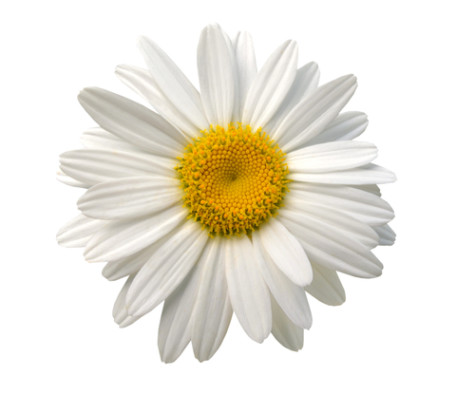Beginning in April, the Royal London Hospital for Integrated Medicine will no longer be able to provide patients with homeopathic remedies funded by the UK’s taxpayers.
This is part of a larger UK crackdown on homeopathy that has gotten underway over the past 18 months. Late in 2016, homeopathy was banned in one of the country’s north-west boroughs. Later, England’s National Health Service concluded that general practitioners should not be prescribing homeopathic remedies anywhere.
If you’re wondering why the NHS ever offered pseudoscience on the public dime at all, you’re not alone! Almost two years ago, I wondered the same thing.
This post first ran in March of 2016, but I thought it warranted a fresh airing, since the story now has a happy ending.
If you suffer from low blood pressure or an inability to fly into a blind rage, I recommend an evening of fine dining while finding yourself backed into a serious conversation about homeopathy.
Difficulty: you’ve been instructed by your spouse to “keep your science in your pants” because it’s a social occasion with extended family, not Thunderdome.
It wasn’t easy, but I kept my cool in the face of “I just don’t trust Western medicine”. Remained placid throughout the mansplanation of how dilution increases potency. But then I got too cute: I asked why tap water, which must contain an enormous variety of ultra-diluted compounds, doesn’t give you a massive coronary with the first sip. The explanation, accompanied by non-homeopathic levels of scorn: that today’s tap water is obviously too polluted for the homeopathic effects of its ingredients to show efficacy.
Obviously I don’t understand homeopathy.
The episode got me thinking about something that’s puzzled me about the UK since I moved here in 2010: the country’s (largely) uncritical acceptance of homeopathy. It’s so at odds with our otherwise default state of grumpy skepticism. The UK is just not the kind of place you’d expect “woo” to flourish, and yet the National Health Service may be spending as much as £5 million on homeopathic treatments.
Homeopathy is available in some of our hospitals – in fact, we have a homeopathic hospital. I used to walk by it every day on my way to work, and I regret to inform you that contra homeopathic practice elsewhere, this hospital is not an open field containing a lone brick that once had limited contact with a doctor. “Homeopathy is used for an extremely wide range of health conditions,” says the NHS on its page about homeopathy. “Many practitioners believe that homeopathy can help with any condition.” We also have a fine selection of homeopathic pharmacies (see joke, above). And even at the standard regular NHS pharmacies on every corner, shelves are stocked with loads of homeopathic remedies.
So how is this all supposed to work anyway? For the majority of homeopathy users – who turn to the treatments for relief from things like asthma, skin conditions, and insomnia – the idea appears to be “hair of the dog”. So for example, if you’re an insomniac, get a little tiny bit of insomnia, mix it with some water, dilute it to nothing, and take your potion.
What the hell is a “a little bit of insomnia”?. Oh, of course – owl.

You probably think I was just making a stupid joke. While I’d love to be that funny, the homeopathic insomnia remedy I linked to is actually, literally made from owl. Sorry, owl feathers. Sorry, diluted owl feathers. On the grounds that people with insomnia are suffering from “owl-like characteristics.” So to counter that, according to
(Pause for pedantic, rage-fuelled digression: Who’s going to explain to the nice homeopath that that there’s a difference between nocturnal behaviour and insomnia? I mean I suppose it stands to reason that there might exist some owls that are insomniacs? Popping Ambien at sunrise and cursing the daylight? Going to the homeopathic owl pharmacy to get some tincture of human, since we are diurnal creatures and our essence is therefore bound to get owls back on track to their proper sleep schedule. At least owl is a better ingredient than Stonehenge. Also, regrettably, not a joke.)
Okay, I’m back. So far, so ridiculous, but these guys at least deserve some credit for being up front about their ingredients (or lack thereof). Not everyone is so forthcoming. Some sugar pills and potions are cleverly packaged to hide the homeopathy. Browsing the pharmacy shelves, you might come across a treatment simply labelled “Chamomile. An herbal concoction.” Sure, why not? Isn’t aspirin derived from the bark of the willow tree? Could work.
What it doesn’t say on the package: no chamomile is involved. Just water that “remembers” a brief, long-ago encounter with chamomile.

I used to think it was our nation’s strong libel laws that allow homeopathic products to escape the otherwise blistering sarcasm that comes naturally to the UK’s journalists. Science writer Simon Singh got his pants sued off for saying these sorts of things, so when it comes to the topic of quackery, British journalists get pretty nervous.
But that can’t be the whole story. After all, journalists gave wide coverage to a blistering report (PDF) released in 2010 by UK House of Commons Science and Technology Committee that concluded: “Homeopathy is no better than placebo.”
No better than placebo. Which leads me to my conspiracy theory Erik was talking about.
Ladies and gentlemen, please say hello to my newest strategy to cut short homeopathy conversations with extended family: Homeopathy is a giant secret clinical trial run by the government to test the placebo effect.
Allow me to explain. Placebo is an effect that has undergone a massive reputational transformation, from nuisance to an intriguing way the body can heal itself without drug intervention. The medical world is just starting to work out how to integrate its unpredictable and strange power into mainstream medicine.
It’s looking like the placebo effect works by turning on your body’s natural healing mechanisms – powerful enough to address not just psychosomatic conditions, but even amping up your immune system. So where’s the switch? Part of the effect seems to be down to the expectations we have been conditioned to have during an encounter with medicine… or something that carries the trappings of medicine.
These conclusions come from a handful of intriguing but small studies. What we really need is to confirm them is a longitudinal study of the placebo effect on a massive sample.
Well, I think our government is far cannier than anyone suspected, and they have been using the infrastructure of homeopathy as a way to secretly test the placebo effect.
And let’s not forget the homeopaths – they have done scientists an immense favour. It takes money and time to build a brand and following to make a sugar pill become a convincing prop in the placebo effect. You need a vast network of people including graphic designers, salespeople, NHS copywriters (“Many practitioners believe that homeopathy can help with any condition”) and pharmacists, to credulously and earnestly market and sell Nothing like that’s not a completely insane thing to do.
And presto: highly convincing sugar pills ready to be deployed among people who have no idea they are taking part in a grand experiment.
It would explain why sane people swear that homeopathy is curing them of their eczema or asthma – homeopathy may be a whole lot of nothing, but under some conditions, anecdotal evidence suggests that it seems to work. This would also explain why and when homeopathy doesn’t work. Maybe shaken-and-stirred chamomile can get your brain juices flowing, but the memory of an owl feather is just one fucking bridge too far.
No scientific study, no matter how well replicated, could ever attend to so many details.
Now if they’d just tell us the results.
Photo credits:
Pharmacy: shutterstock
Homeopathic owl: shutterstock
Great article ! But compared with some of the twaddle that’s out there homeopathy is a model of rationality and evidence-based interventions. Bach flower remedies are water exposed to the vibrations of flowers, people pay money to have their pets’ ailments diagnosed and treated over the ether (or the internet for skeptical technophiles), putting a chunk of rose quartz in a horse’s water will improve its self esteem (I kid you not !).
Apparently intelligence, unlike homeopathic remedies, does not become more potent in smaller quantities.
Ha! I’m stealing that for my next grouchy homeopathy post.
I’ve always been in favor of a giant placebo experiment, but sorry that the U.K. one lacks a key element I’d add: This cure will only work if you stop smoking, drink and eat a little less, and exercise.
Homeopathy is all over Italy too. Actually, you have to always keep on your toes when navigating medicine here because it’s kind of like an alternative medicine minefield. I’ve had MDs prescribe me some really bizarre herbal things that haven’t been trialed, and one even prescribed me what I discovered later to be a homeopathic remedy. Pharmacists, at normal pharmacies, will actively try to push it on you. And it’s everywhere. Once I accidentally bought homeopathic toothpaste – whatever that means.
Oh silly homeopathy.
https://www.youtube.com/watch?v=HMGIbOGu8q0
Did I miss something?
The linked (pro homeopathy) article states this:
The facts, it seems, are being ignored. By the end of 2009, 142 randomised control trials (the gold standard in medical research) comparing homeopathy with placebo or conventional treatment had been published in peer-reviewed journals – 74 were able to draw firm conclusions: 63 were positive for homeopathy and 11 were negative. Five major systematic reviews have also been carried out to analyse the balance of evidence from RCTs of homeopathy – four were positive (Kleijnen, J, et al; Linde, K, et al; Linde, K, et al; Cucherat, M, et al) and one was negative (Shang, A et al). It’s usual to get mixed results when you look at a wide range of research results on one subject, and if these results were from trials measuring the efficacy of “normal” conventional drugs, ratios of 63:11 and 4:1 in favour of a treatment working would be considered pretty persuasive.
How does it relate to the rest of the article?
Peter Apps: ” Apparently intelligence, unlike homeopathic remedies, does not become more potent in smaller quantities.” OUTSTANDING COMMENT!
Here in the U.S., the hospital chain that administers the medical plan at my place of employment appears to be supporting treatments that look a lot like homeopathy. After pondering this for a bit, the conclusion I came to is that the hospitals are willing to support anything that doesn’t require paying for real doctors and real medicine. If the placebo effect works, they have saved a lot of money and real doctors’ time.
Thank you for sharing this delightful take on a subject that would usually leave me sad and frustrated.